![[Original size] est 2021 (1) [Original size] est 2021 (1)](https://bumblebeeproject.org/sitepad-data/uploads/2021/05/Original-size-est-2021-1-1.png)
![[Original size] est 2021 (1) [Original size] est 2021 (1)](https://bumblebeeproject.org/sitepad-data/uploads/2021/05/Original-size-est-2021-1-1.png)
We know not everyone has access to social media, and we wanted our Instagram content to be accessible to everyone. This post will contain all of our Instagram posts and captions from @bumblebproject so everyone can experience them.
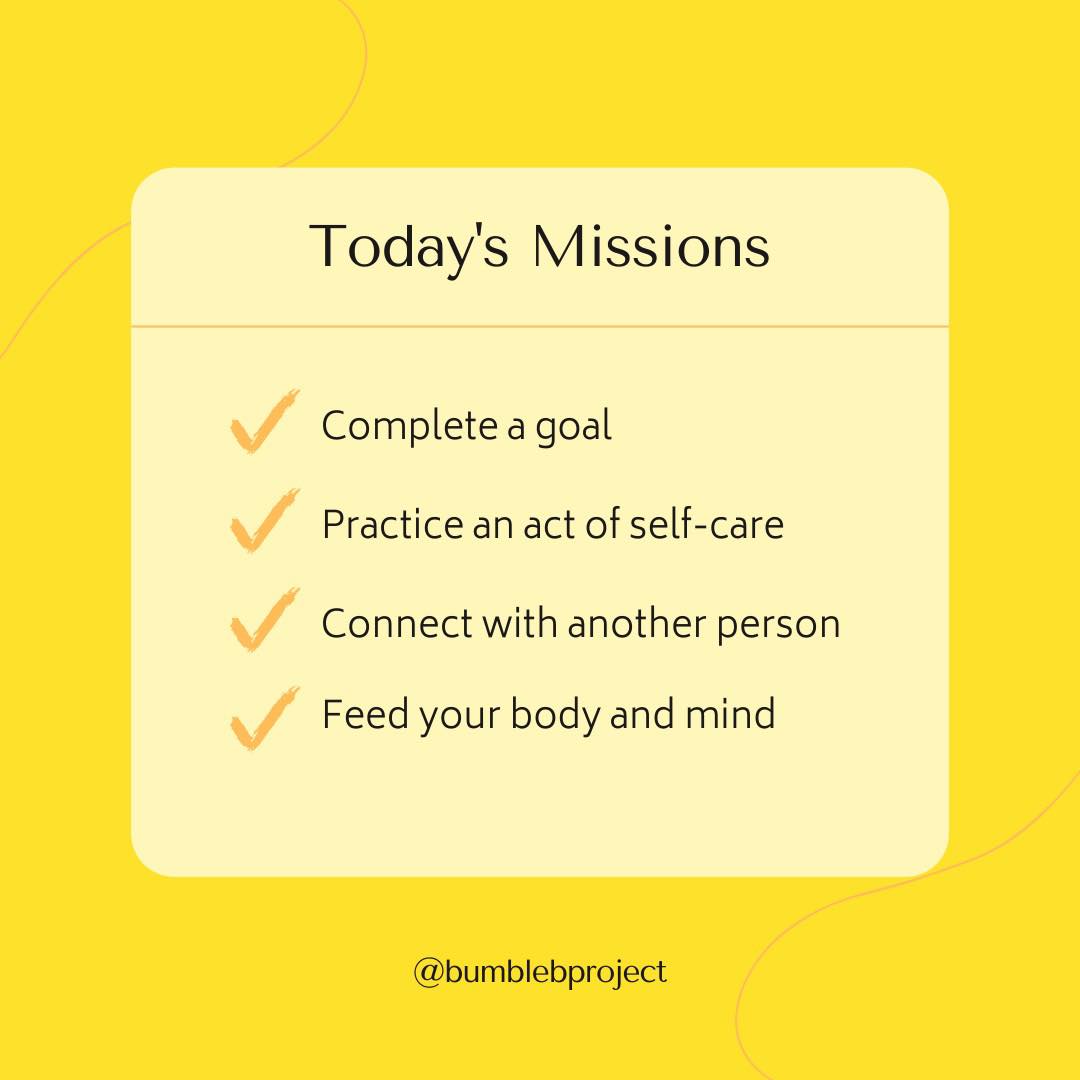
How do you eat an elephant? Well, one bite at a time.
The same goes when it comes to reaching your dreams and achieving your goals. You have to start small.
No matter how big your goals and dreams, you need to start small.
What are 5 things you can do today to work towards your goals?
What are five things you can do to maintain a positive life?
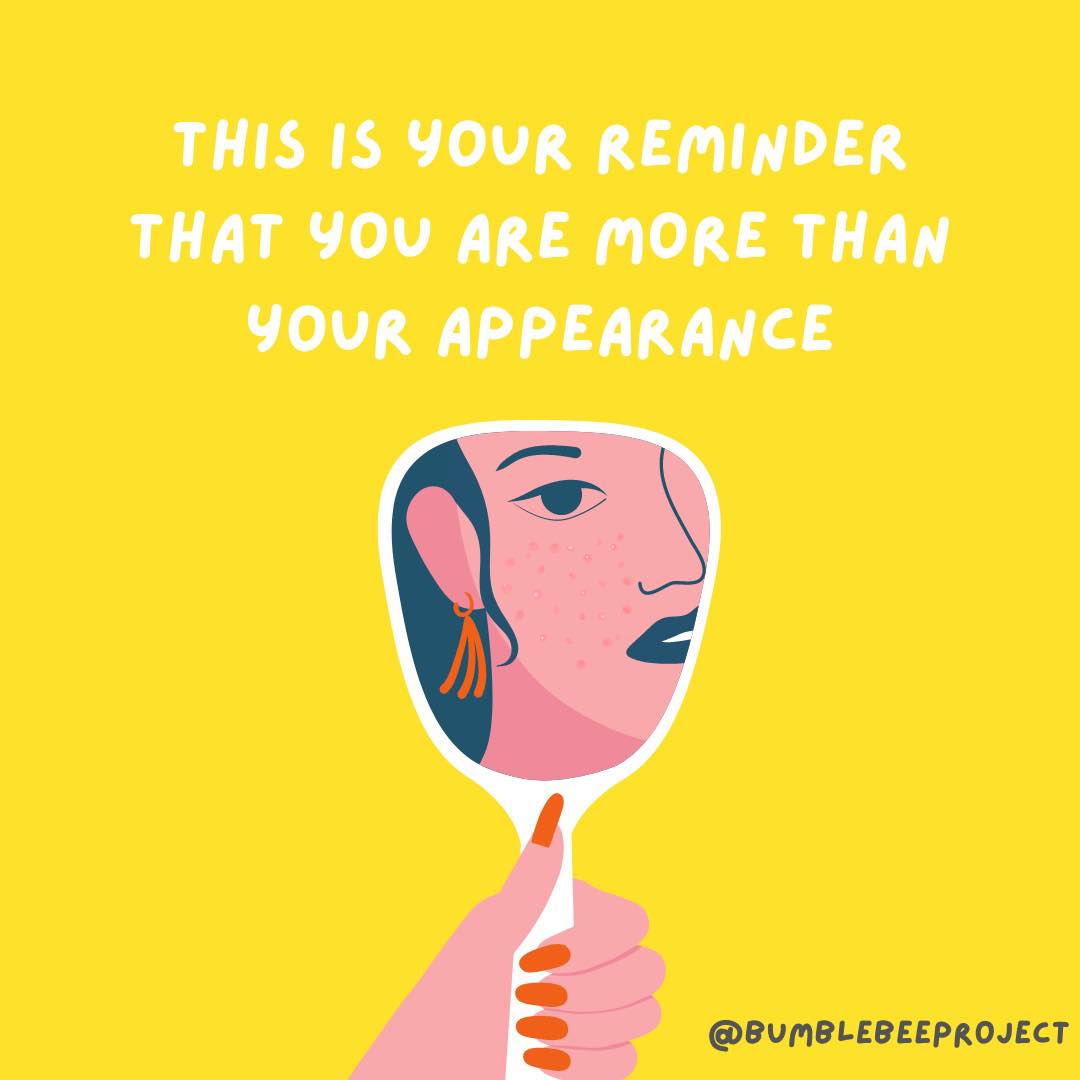
As I have grown up in a society that places beauty and outward appearances as the most important goals, I have come to realize three key facts.
1. You will never be completely happy with your body.
2. There will always be someone you feel is better looking than you.
3. Someone out there finds you to be the epitome of beauty.
Most of us have felt pressure to strive for this ideal beauty standard due to society and social media, and many of us have found ourselves unhappy with what we look like because we are constantly comparing ourselves to others. These others could be friends, family, the sought-after Instagram models, or even the person walking past you in the grocery store. Our generation claims that individuality and originality are two important qualities to have and that we must keep our creativity alive in this ever-deadening society created by politics, religious differences, and other societal pressures. But isn’t it funny that everyone is trying to conform to this “perfect” image created by social media and other media outlets?
Everyone’s perception of beauty is different, and I believe that it is ever-changing as well. And at this moment in time, it seems like all girls are trying to look exactly like the Kardashians and Jenners, or take a full 180-degree turn from that and want to be seen as a nature-loving, yoga-doing, well-traveled young adult with perfect wavy hair and tan skin. Why do we sit back and look at these people like they are the true vision of beauty, but can’t see ourselves in the same light? I bet someone out there is able to when looking at you. How great would it be if that’s what you saw every time you looked in the mirror.
Yes, we are always going to find someone who we believe is prettier than us, has a better body, has better skin, or hair, but I will let you in on a secret: for the ten people that you admire from afar, I guarantee there are another ten admiring you. So embrace your flaws, embrace your beauty, and know that you are more than just an appearance. You have strengths that others strive for, you are intelligent in areas that others are not, and you are more than what you are giving yourself credit for.
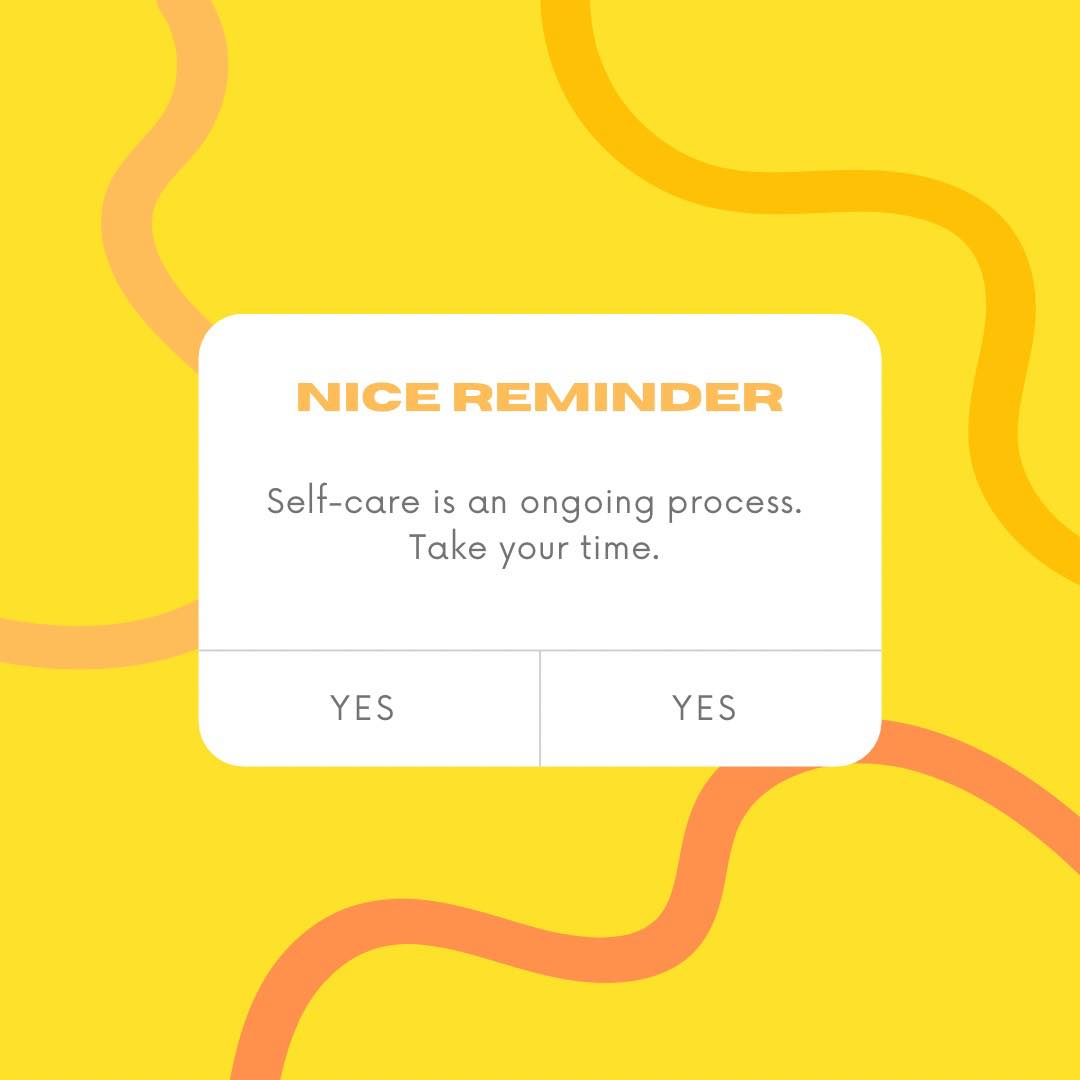
Self-care is a term thrown around a lot, but experts say it’s often misunderstood.
“Most people approach self-care from the thought, ‘I’m going to make myself better,’ and that doesn’t work,” Gracy Obuchowicz, self-care coach says.
She says self-improvement is often mistaken for self-care, though they’re subtly different.
“Self-improvement comes from a perfectionist mind-set, where we think there is something we need to fix about ourselves — that we’re lazy or procrastinators — all the stories we tell ourselves when we have a goal for our well-being and we don’t achieve those, so we go into a shame spiral and we tell ourselves we’re not good enough in some way, but self-care is different because it’s about allowing yourself to have a nurturing experience of life right now as opposed to when you work harder in the future,” Obuchowicz said.
She also says numbing behaviors, like drinking, eating, or surfing social media in excess, are often mistaken as self-care.
Because it can be hard to distinguish between the two, she advises people think of it in another way.
“Self-care is something that when you do it, you wake up the next morning feeling better, while numbing is something that when you wake up the next day, you think, ‘Maybe I didn’t need that extra glass of wine or dessert.'”
“People assume they have to do self-care as a separate activity rather than build them into the routines of their life, yet they’re spending time on them anyway but not doing them in a way that keeps them healthy,” said Dr. Wayne Jonas.
Practice creating a healthy self-care routine that you can incorporate into your normal life.
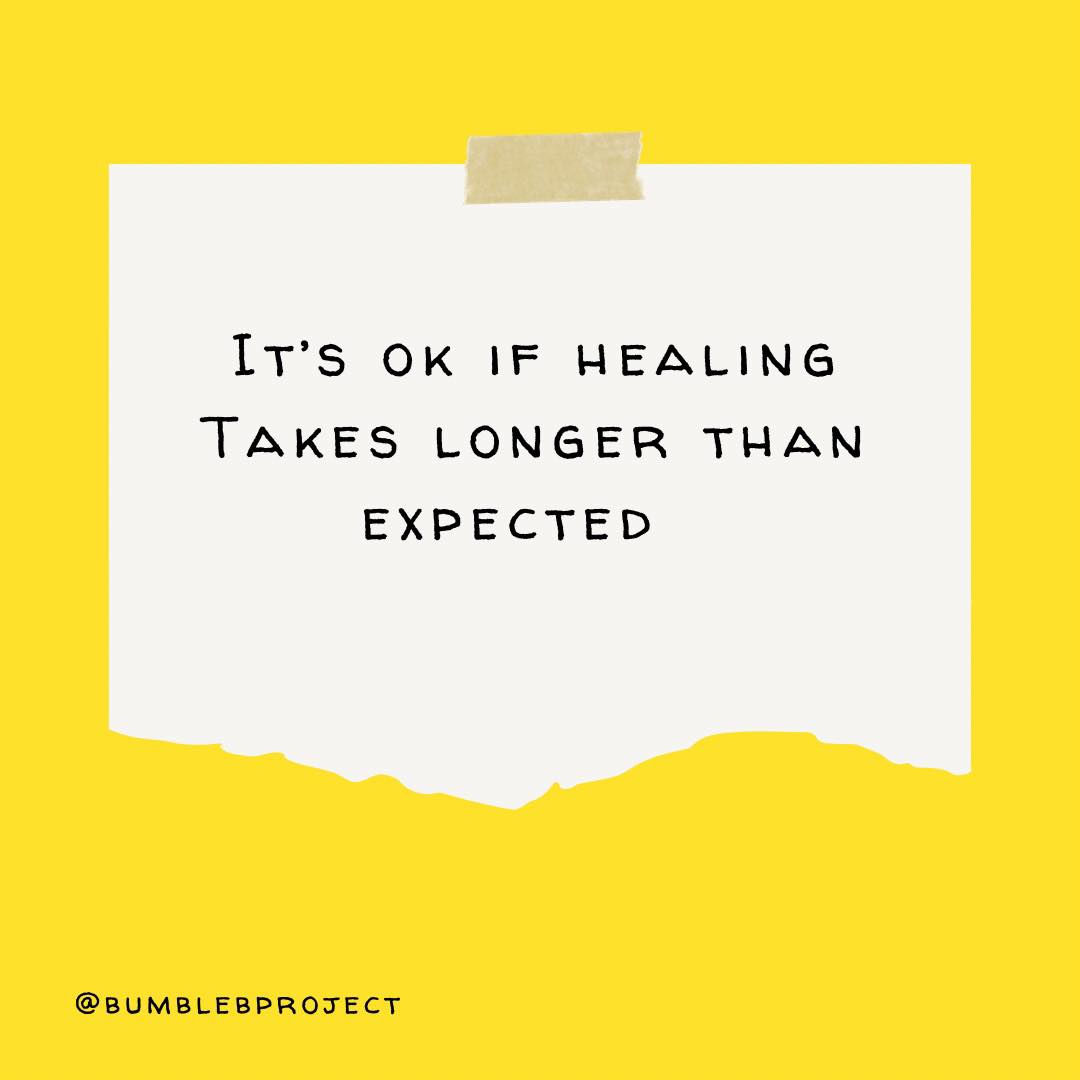
Here are some subtle signs to show that YOU ARE actually in fact getting better, or at least heading in the right path.
You start to feel happy for no reason – Feeling random bursts of happiness is a very good indication that you are on the mend. It shows you are starting to enjoy life again and starting to see the good life has to offer.
You understand that the “bad days” won’t last forever – We all have bad days – that’s a given, but for someone who may be suffering emotionally, everyday may seem like a bad day with no end. When you start to acknowledge and see that these (bad) days will pass, it means you are on the right track to feeling better.
You look back at the past and embrace it – It’s important to remember that what happens in our past, doesn’t determine our future. Once you start to realize this, it means that you are able to look at the future as an opportunity to live your most fulfilled life and use the past as learnings on how you can better yourself.
You begin to step out of your comfort zone – When we are in a negative headspace or situation, it’s easy to shut ourselves from the world. The moment you start to accept invites, catch up with friends or even ask for that promotion at work, you begin to build confidence and self worth within yourself which is an important part of the healing process.
Your energy levels improve – When our emotional well-being takes a nosedive, energy levels tend to drop as well. A good indication that you are in fact healing or starting to heal is when you are not afraid to meet new people, let your hair down and dance, or even try a new adventurous activity.
You start to feel grateful – In a tough situation, it’s easy to overlook all of the positive aspects within your life. As you begin to heal, you become more aware of the good that surrounds you. From the delicious cup of coffee to the sun peaking through the clouds to the friends and family you have, you start to appreciate the little things in life.
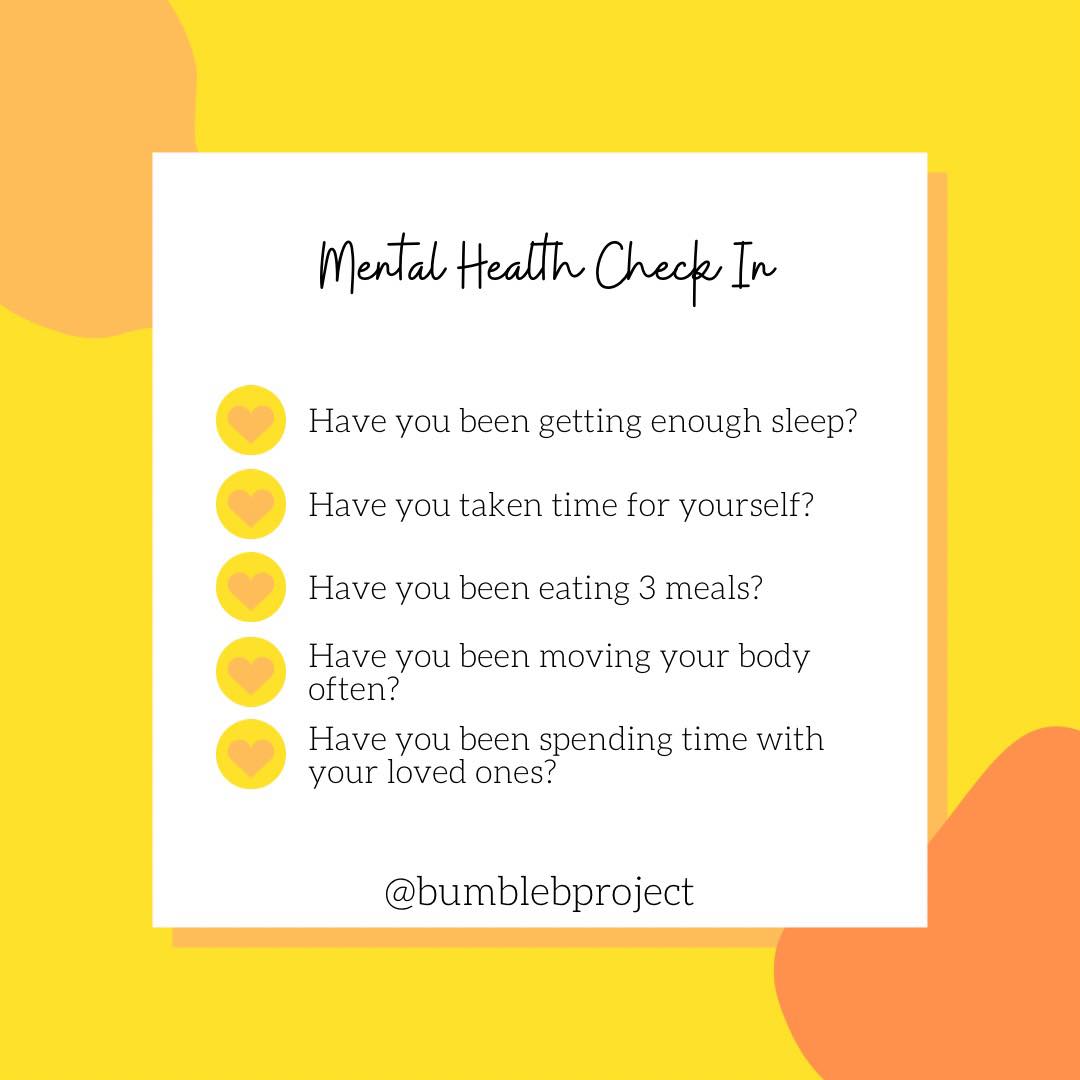
It’s good to check in with yourself to see what needs improvement and what’s going well. So stop and take some time to take care of yourself.
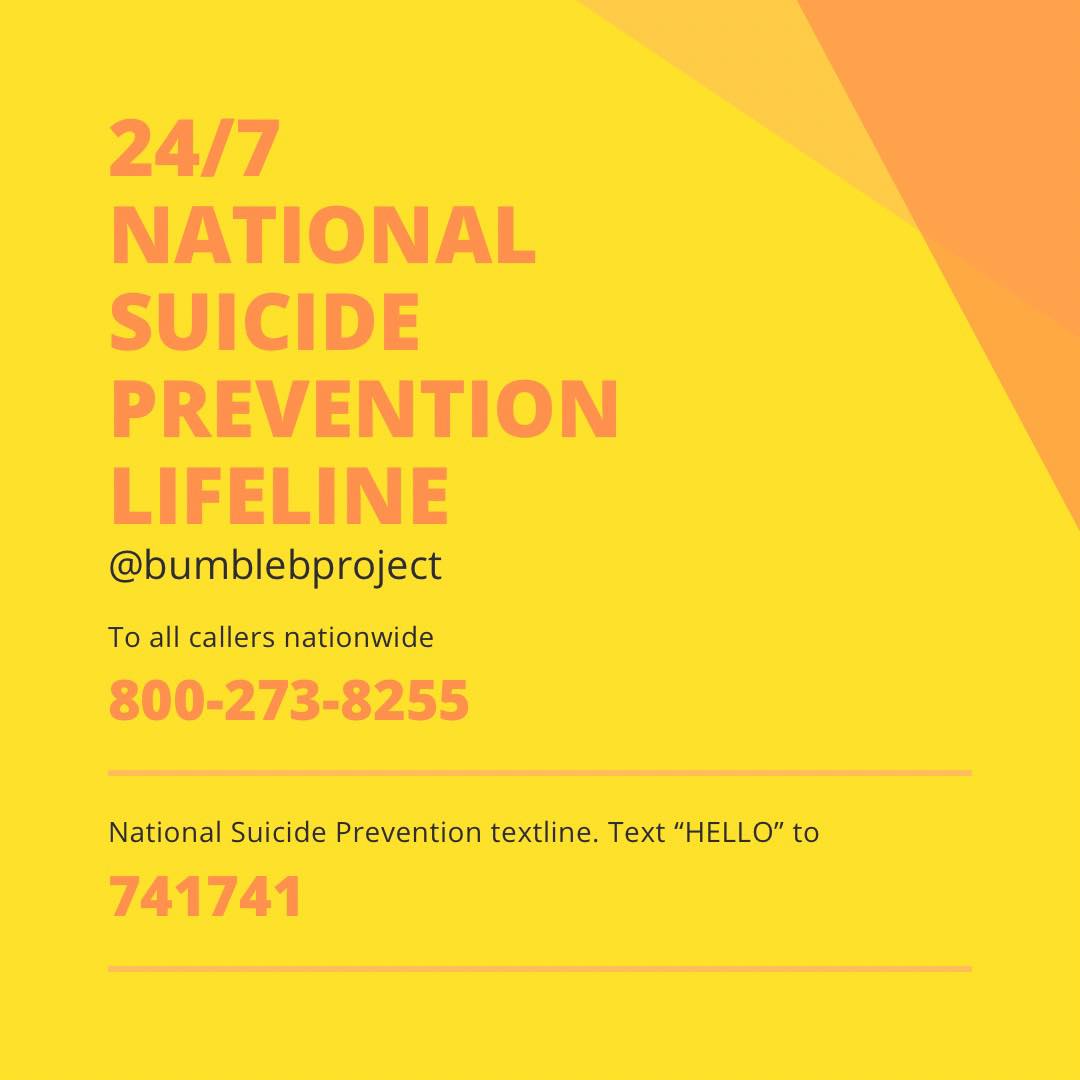
If you or someone you know is in a crisis
National Suicide Prevention Lifeline
1-800-273-8255
Or text “HELLO” to 741741
NAMI Helpline
800-950-NAMI
Or text “NAMI” to 741741
National Eating Disorder Association
1-800-931-2237
Love Is Respect
(Abusive relationship helpline)
1-866-331-9474
Or text “LOVEIS” to 22522
The Trevor Project
(LGBTQ+ helpline)
1-866-488-7386
Or text “START” to 678678

Everyone has to deal with varying levels of stress. This can be particularly difficult to manage if you also have symptoms of depression or anxiety. When you feel like your stress levels have reached their peak, it might be time to take a quick break to reset.
Sometimes taking a mental health day—a day off that's specifically geared toward stress relief and burnout prevention—is the best thing you can do for yourself. While one day might not solve heavy underlying problems that lead to burnout, a mental health day can provide a much-needed break to pause, regroup, and come back with greater levels of energy and a fresh, less-stressed perspective.

I often hear people complaining that they always seem to come last in the priority list. Work, their partners, children, they feel like they are worrying about everyone else before themselves and are left feeling tired and over-stretched. Does this resonate with you? Have you ever found yourself getting worn out from spending so much of your time and energy on supporting those around you?
It’s no bad thing to be a giver, and hopefully your efforts are appreciated, but you do need to keep an eye on your energy levels because if they hit rock bottom you’ll be no use to anyone.
“remember, you can’t pour from an empty cup.” -we have to look after ourselves in order to be able to look after others.
We want to give our energy to so many things but we can end up burnt out and unable to give anymore, sometimes when we really need to. Making sure you’re getting time to boost your energy levels should be a regular feature on your to do. You wouldn’t go on a road trip without filling the tank, and you certainly wouldn’t accuse the car of being selfish for requiring the gas. You understand that once the gas is in the car, it is free to serve you on your journey.
Once you appreciate that you need to recharge once in a while, it’s time to ask yourself what helps you to recharge? Is it peace and quiet? A change of scene? Hanging out with friends? Whatever it is, make sure you’re making space for it on your schedule to help you keep going with everything else.
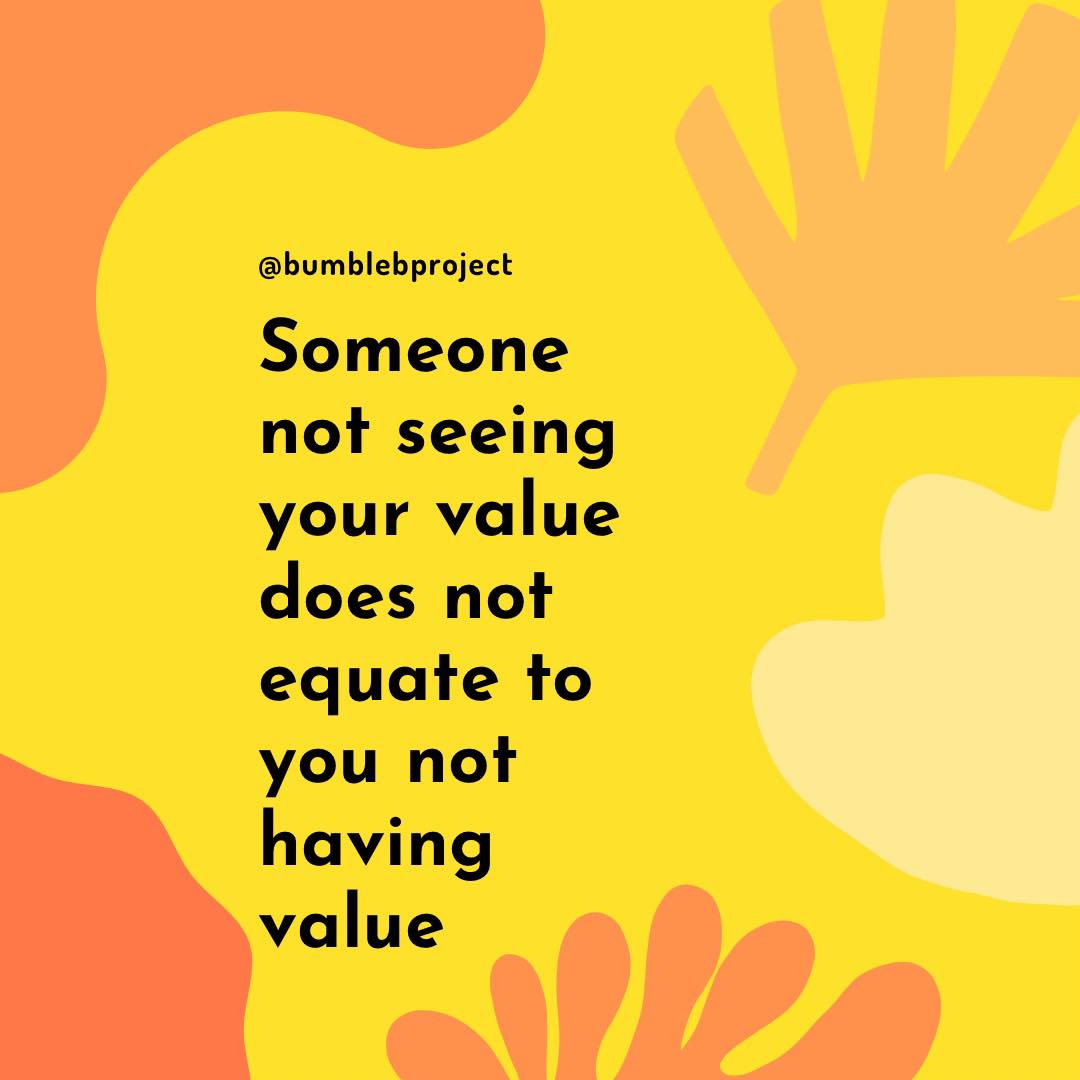
Know that your value doesn’t decrease based on someone’s inability to see your worth.
When you feel like someone has just hit you where it hurts, found your deepest vulnerabilities, and attacked you with all they’ve got, take a deep breath. You got this.
The wrong person will never recognize your worth, even when you’re at your very best. The right person, though, will think you are a treasure even when you’re at your worst.
Some people are filled with their own pain and blinded by the struggles they are going through emotionally, mentally, or any other way. Unable to deal with their pain, they pass it on to others. Don’t let those people define your worth.
People try to define themselves by defining you, and you looking bad makes them feel or look better.
You’re the one to know your own worth. The truth is, if you don’t appreciate yourself and accept yourself for who you are, there’s very little chance someone else will do that for you.
How do we know how much we’re actually worth?
First of all, never let your image of yourself be influenced by how others have treated you. Bad and hurtful experiences that you have don’t mean you’re less worthy.
Leave behind those who make you feel inferior, not to make them see your worth but to remind yourself of it.
Don’t lose yourself desperately trying to hold on to people and things who don’t think you’re worth keeping.
The world will make you feel like you don’t have what it takes. Don’t be the one to believe it.
Know your own worth and now just what you deserve, and by no means settle for anything less.
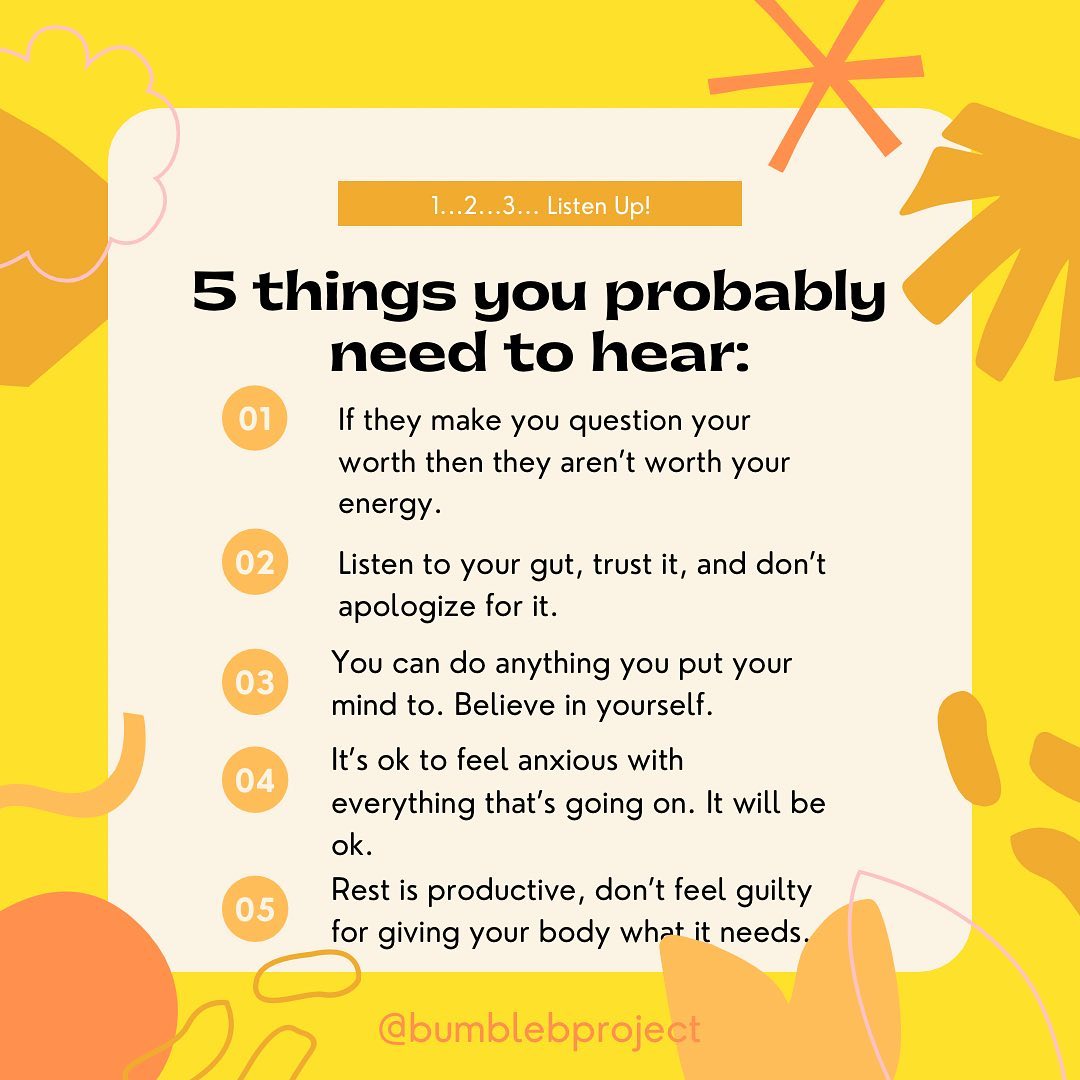
Listen up 💛
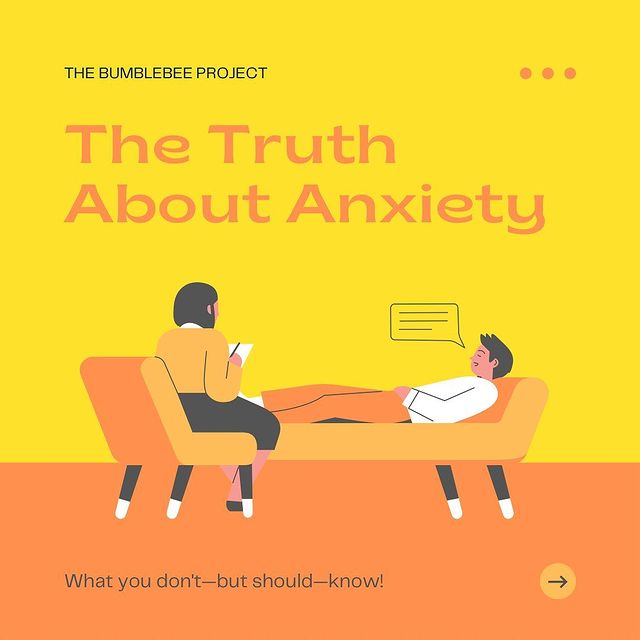
Anxiety is your body’s natural response to stress. It’s a feeling of fear or apprehension about what’s to come. The first day of school, going to a job interview, or giving a speech may cause most people to feel fearful and nervous.
But if your feelings of anxiety are extreme, last for longer than six months, and are interfering with your life, you may have an anxiety disorder.
It’s normal to feel anxious about moving to a new place, starting a new job, or taking a test. This type of anxiety is unpleasant, but it may motivate you to work harder and to do a better job. Ordinary anxiety is a feeling that comes and goes, but does not interfere with your everyday life.
In the case of an anxiety disorder, the feeling of fear may be with you all the time. It is intense and sometimes debilitating.
This type of anxiety may cause you to stop doing things you enjoy. In extreme cases, it may prevent you from entering an elevator, crossing the street, or even leaving your home. If left untreated, the anxiety will keep getting worse.
Anxiety disorders are the most common form of emotional disorder and can affect anyone at any age. According to the American Psychiatric Association, women are more likely than men to be diagnosed with an anxiety disorder.
Symptoms of general anxiety include:
⭐️increased heart rate
⭐️rapid breathing
⭐️restlessness
⭐️trouble concentrating
⭐️difficulty falling asleep
Your anxiety symptoms might be totally different from someone else’s. That’s why it’s important to know all the ways anxiety can present itself.
A single test can’t diagnose anxiety. Instead, an anxiety diagnosis requires a lengthy process of physical examinations, mental health evaluations, and psychological questionnaires.
Treatment for anxiety falls into two categories: psychotherapy and medication. Meeting with a therapist or psychologist can help you learn tools to use and strategies to cope with anxiety when it occurs.
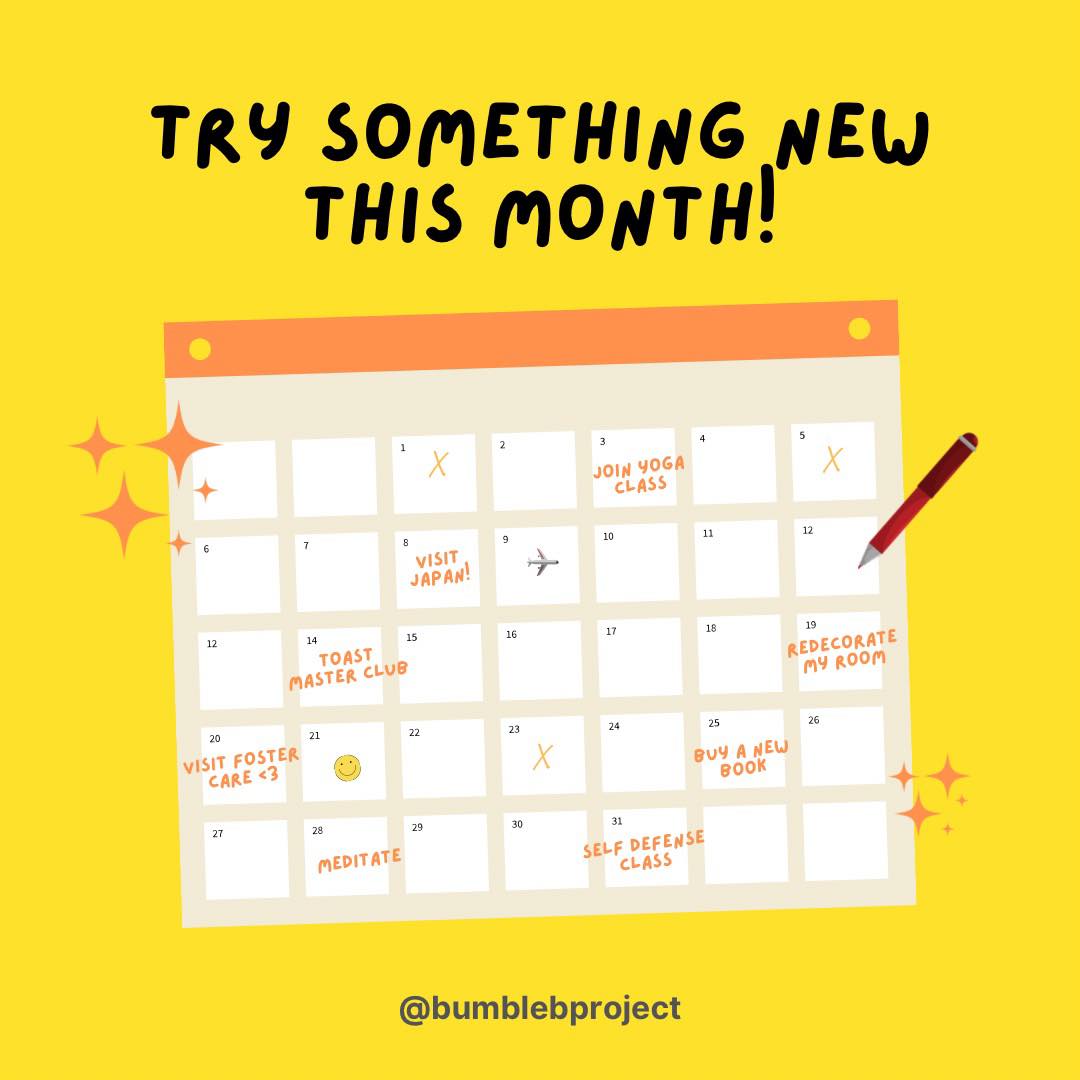
A lot of us get caught up in our day-to-day lives and never try something new. Taking that first step to schedule a class or buy equipment always seems so difficult. But really it’s not as hard as your mind is making it out to be. Trying something new doesn’t have to be a big deal. So make that your goal for the next month and try something new.
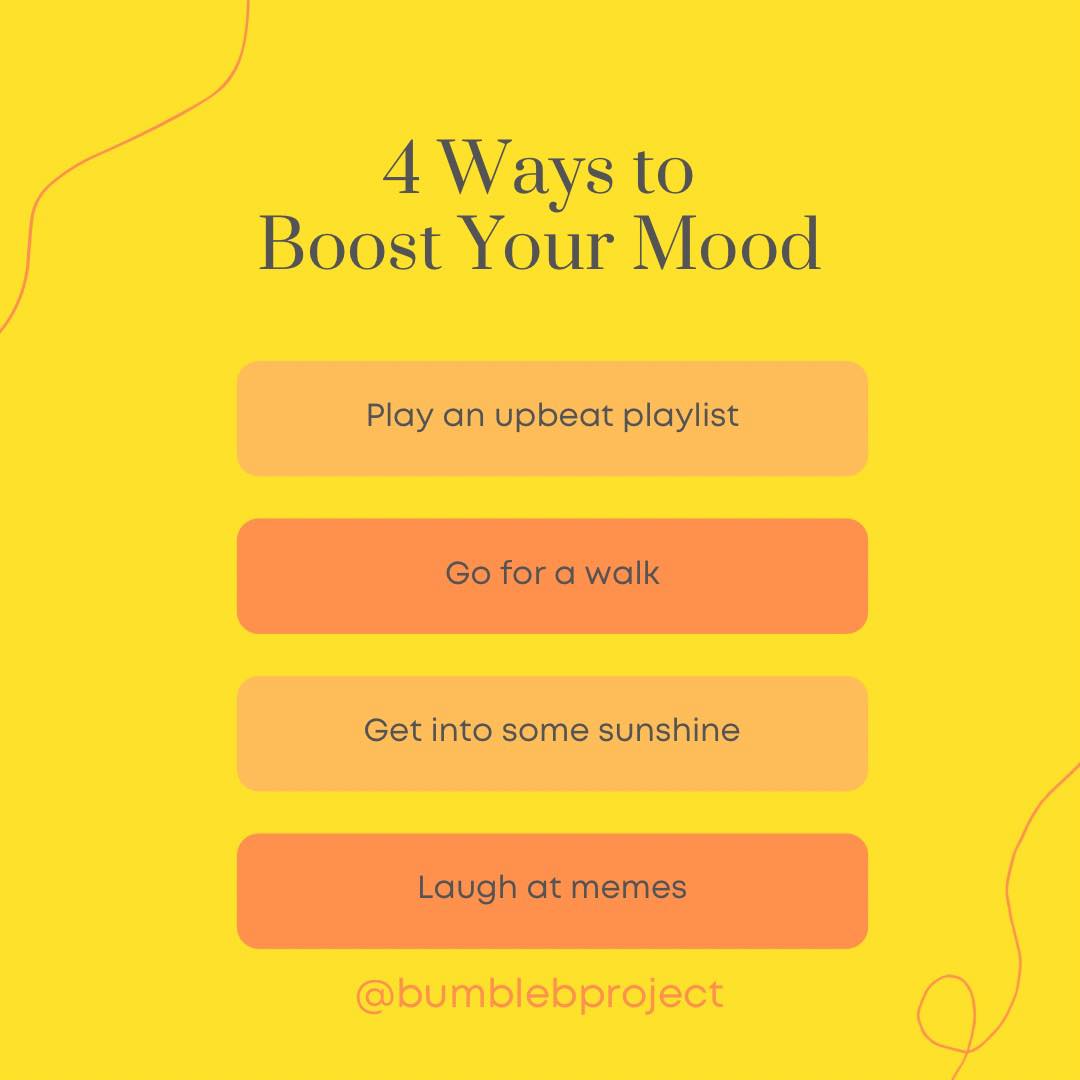
Or add your own!

The COVID-19 pandemic has had a major effect on our lives. Many of us are facing challenges that can be stressful, overwhelming, and cause strong emotions in adults and children. Public health actions, such as social distancing, are necessary to reduce the spread of COVID-19, but they can make us feel isolated and lonely and can increase stress and anxiety. Learning to cope with stress in a healthy way will make you, the people you care about, and those around you become more resilient.
Stress can cause the following:
⭐️Feelings of fear, anger, sadness, worry, numbness, or frustration
⭐️Changes in appetite, energy, desires, and interests
⭐️Difficulty concentrating and making decisions
⭐️Difficulty sleeping or nightmares
⭐️Physical reactions, such as headaches, body pains, stomach problems, and skin rashes
⭐️Worsening of chronic health problems
⭐️Worsening of mental health conditions
⭐️Increased use of tobacco, alcohol, and other substances
It is natural to feel stress, anxiety, grief, and worry during the COVID-19 pandemic. Below are ways that you can help yourself, others, and your community manage stress.
Take breaks from watching, reading, or listening to news stories, including those on social media. It’s good to be informed, but hearing about the pandemic constantly can be upsetting. Consider limiting news to just a couple times a day and disconnecting from phone, tv, and computer screens for a while.
Take care of your body.
Make time to unwind.
Connect with others.
Connect with your community
If you are struggling to cope, there are many ways to get help. Call your healthcare provider if stress gets in the way of your daily activities for several days in a row.
During times of extreme stress, people may have thoughts of suicide. Suicide is preventable and help is available. More about the risk of suicide, signs to watch for, and how to respond if you notice these signs in yourself or a friend or a loved one, can be found at bumblebeeproject.org
If you or someone you know is suicidal seek help immediately at a hospital or call 800-273-8255
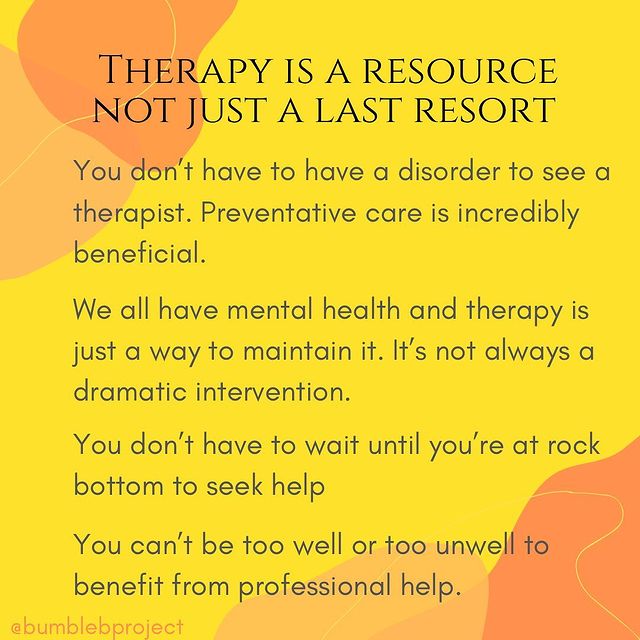
Many of us have a narrow view of therapy. We think it’s solely for navigating clinical depression or severe anxiety or roller-coaster moods. We think it’s only an option when we’re going through a major crisis, a big transition, or a prolonged, persistent period of grief. We think therapy is only an option when relationships become disconnected, and marriages are on the brink of divorce.
While therapy is important and vital for all the above, it’s also helpful for a lot of other reasons, and you don’t have to wait until the walls are falling down to work with a clinician. You can go when the paint is chipping—or when you’d like a different color on your walls.
In other words, therapy offers a broad array of benefits for all of us, whatever our circumstances, conditions, and concerns.
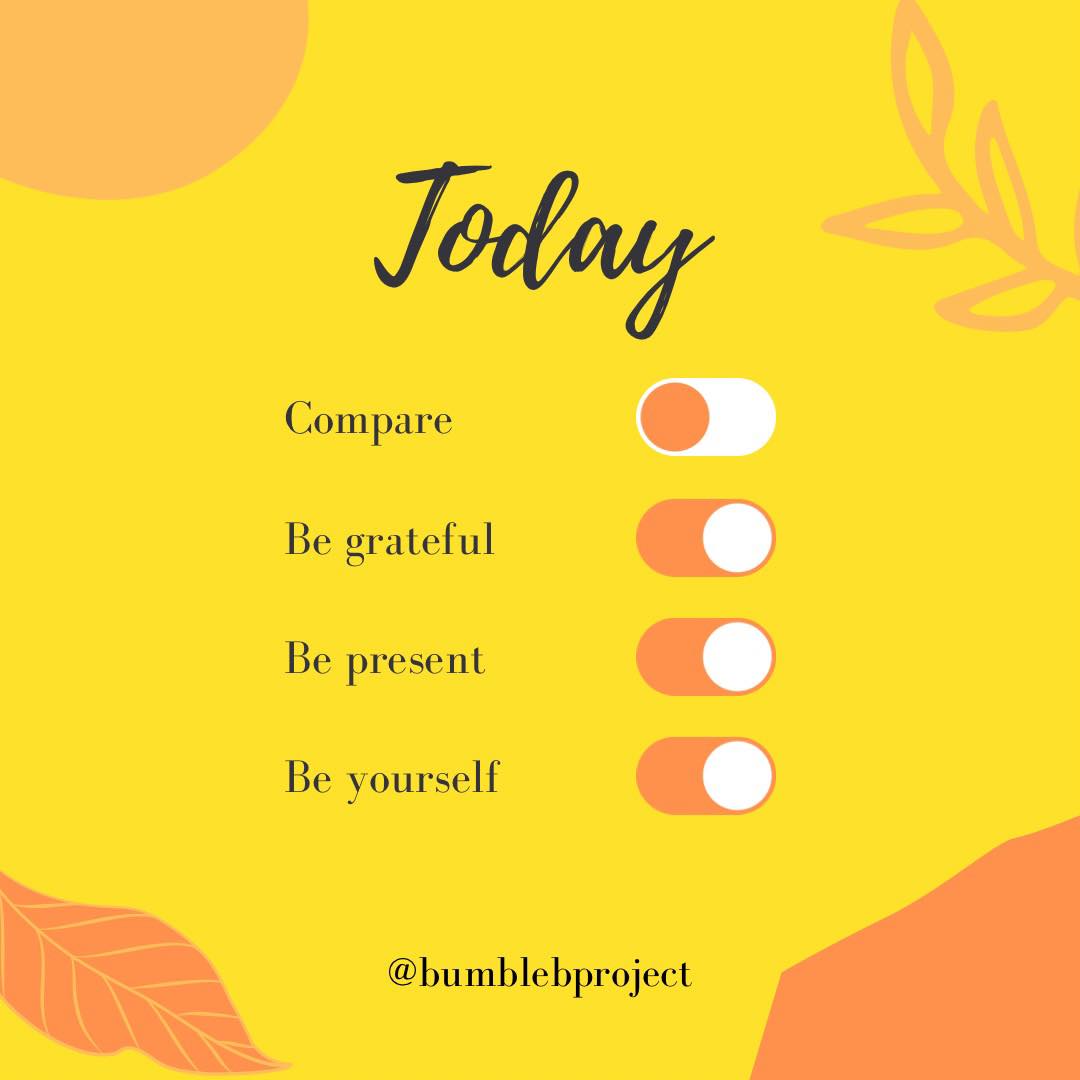
What is mindfulness?
Mindfulness is the basic human ability to be fully present, aware of where we are and what we’re doing, and not overly reactive or overwhelmed by what’s going on around us.
While mindfulness is something we all naturally possess, it’s more readily available to us when we practice on a daily basis.
Whenever you bring awareness to what you’re directly experiencing via your senses, or to your state of mind via your thoughts and emotions, you’re being mindful. And there’s growing research showing that when you train your brain to be mindful, you’re actually remodeling the physical structure of your brain.
The goal of mindfulness is to wake up to the inner workings of our mental, emotional, and physical processes.
Mindfulness is available to us in every moment, whether through meditations and body scans, or mindful moment practices like taking time to pause and breathe when the phone rings instead of rushing to answer it.
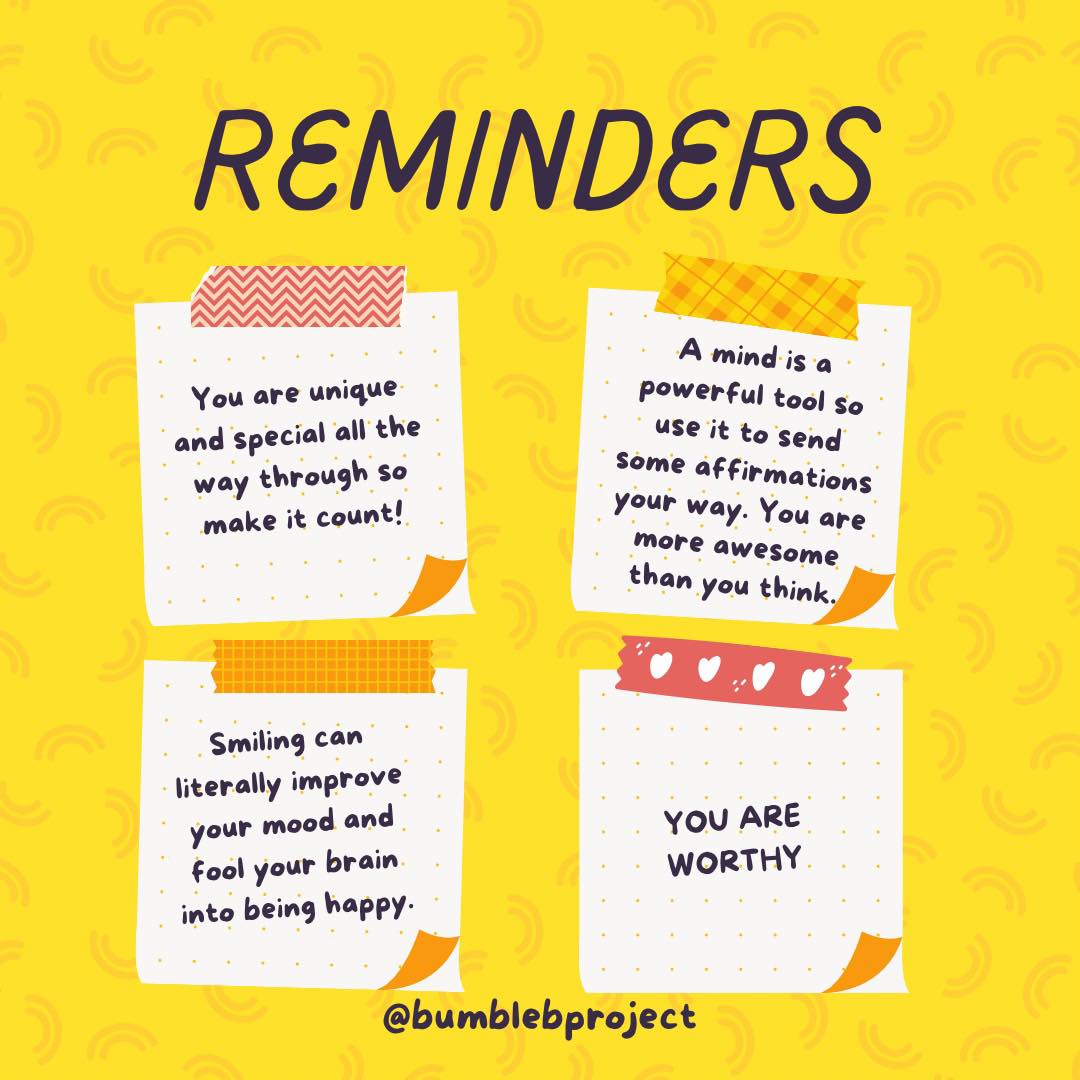
1) You are more than your flaws.
2) Your path is carved towards greatness.
3) “You are imperfect, you are wired for struggle, but you are worthy of love and belonging.” -Brene Brown
4) If people don’t accept you, they can shove it.
5) Forgive yourself for all mistakes you have made.
6) “‘Cuz you’re amazing…just the way you are.” -Bruno Mars, Just The Way You Are
7) You may not always see the good in yourself, but that doesn’t mean it isn’t there.
8) Your feelings are always valid, no matter what they are.
9) Bad days happen, and that’s okay.
10) You are too big of a gift to the world to waste your time on self-pity and sadness.
11) “Embrace the glorious mess that you are.” -Elizabeth Gilbert
12) Your past does not define you.
13) You are unique and that’s okay.
14) You do not need the approval of others to feel happy.
15) Being weird is just a side effect of being awesome…and you ARE awesome.
16) “No one can make you feel inferior without your consent.” -Eleanor Roosevelt
17) Be happy in your own skin and circumstances.
18) It’s a new day: kick ass, walk tall, and sparkle!
19) True friends love you for who you are.
20) “What makes you different makes you beautiful.” -Backstreet Boys, What Makes You Different
21) Beautiful girl, you can do hard things.
22) Embrace who you are: the good and the bad.
23) Eh, stretch marks are just little lightning bolts reminding you that you’re a force of nature.
24) “It’s never overreacting to ask for what you want or need.” -Amy Poehler
25) Recovery isn’t a straight line.
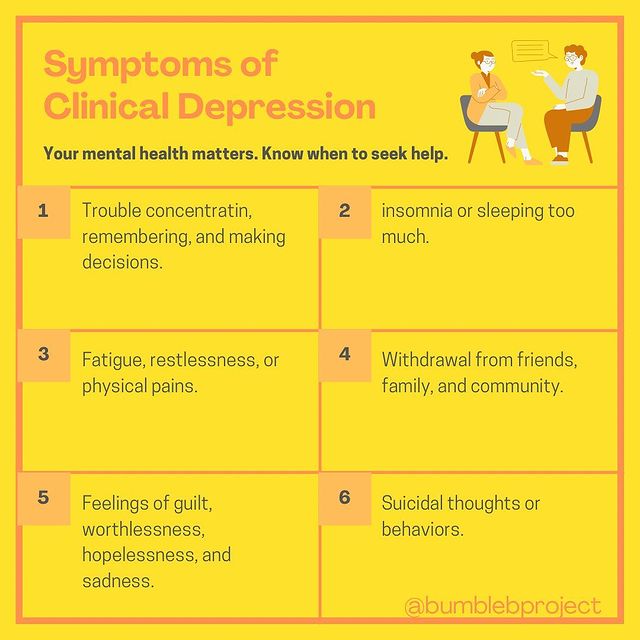
Don't ignore these symptoms of depression. If your mood doesn't improve or gets worse, seek medical help. Depression is a serious mental illness with potential for complications.
Depressive disorder or simply depression, is more than just feeling sad or going through a hard time. It is a serious and real mental health condition that requires understanding and medical care. Left untreated, depression can be life changing for those who have it and their families. Fortunately, with early detection, diagnosis and treatment consisting of medication, psychotherapy, support and a healthy lifestyle, many people can feel better.
It's important to realize that feeling down at times is part of normal life. Sad and upsetting events happen to everyone. But, if you're feeling down or hopeless on a regular basis, you could be dealing with depression.
Some people will only experience one depressive episode in their lifetime, but for most, depressive disorder is reoccurring. Without treatment, episodes may last a few months to several years.
Depression is also very common. The Center for Disease Control and Prevention (CDC) estimates that 8.1% of American adults ages 20 and over had depression in any given 2 week period from 2013-2016. People of all ages, races, and socioeconomic backgrounds experience depression, but it does affect some groups more than others.
Depression doesn't have just one single cause. It can be triggered by a crisis, physical illness, or something else completely. It can even occur spontaneously.
There isn't one single test to diagnose depression, but your healthcare provider can make a diagnosis based off of your symptoms and psychological evaluation.
Depression can be temporary, or it can be a long-term challenge. Treatment doesn't always make depression go away completely. However, it does normally make symptom manageable. Managing symptoms of depression involves finding the right medication and therapy. This might take some time and a couple different combinations but don't give up. Keep talking to your healthcare provider until they find what works right for you.
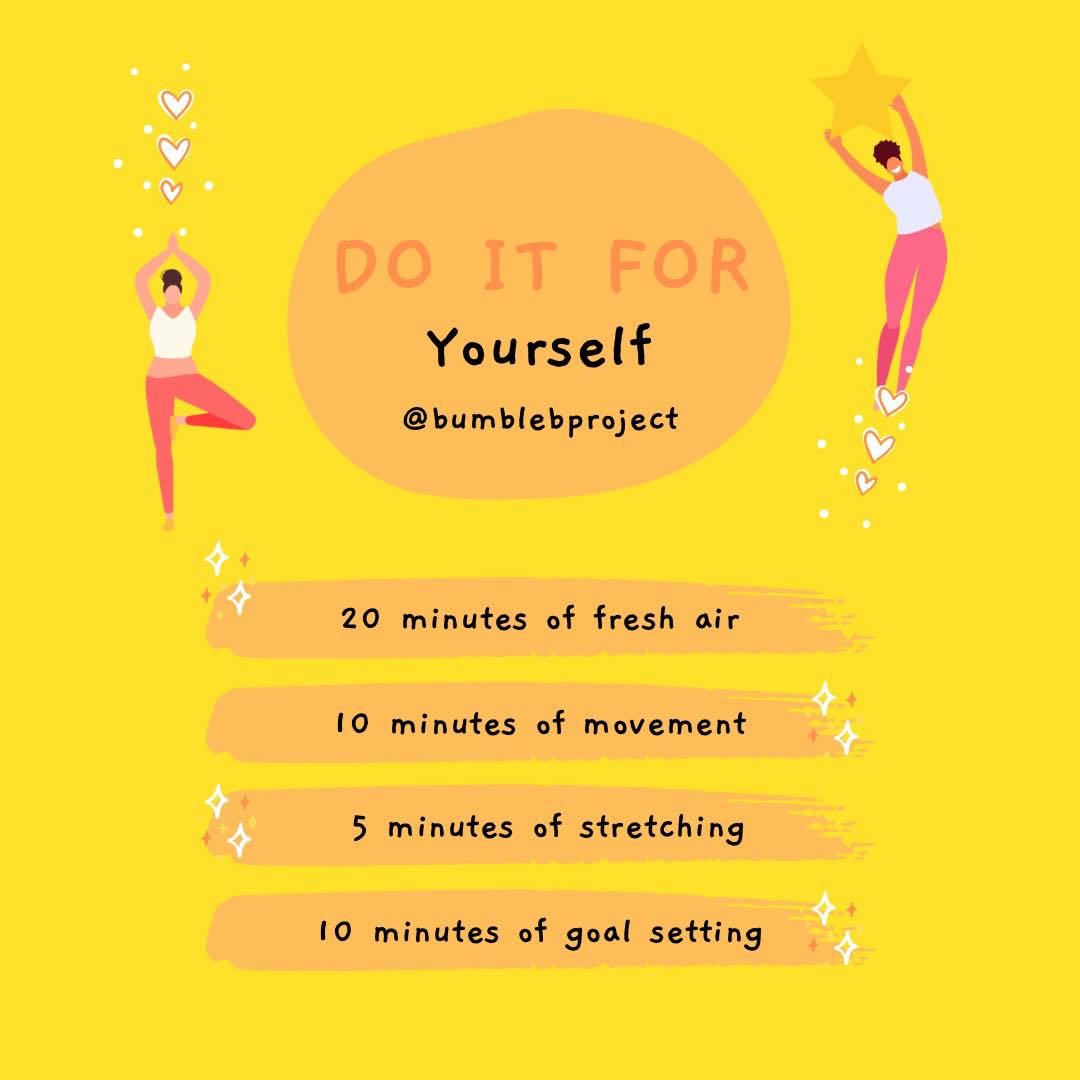
What Is Self-Care?
Self-care describes a conscious act one takes in order to promote their own physical, mental, and emotional health. There are many forms self-care may take. It could be ensuring you get enough sleep every night or stepping outside for a few minutes for some fresh air.
Self-care has been defined as, "a multidimensional, multifaceted process of purposeful engagement in strategies that promote healthy functioning and enhance well-being."1 Self-care is vital for building resilience toward those stressors in life that you can't eliminate. When you've taken steps to care for your mind and body, you'll be better equipped to live your best life.
Unfortunately, however, many people view self-care as a luxury, rather than a priority. Consequently, they're left feeling overwhelmed, tired, and ill-equipped to handle life's inevitable challenges.
It's important to assess how you're caring for yourself in several different domains so you can ensure you're caring for your mind, body, and spirit.
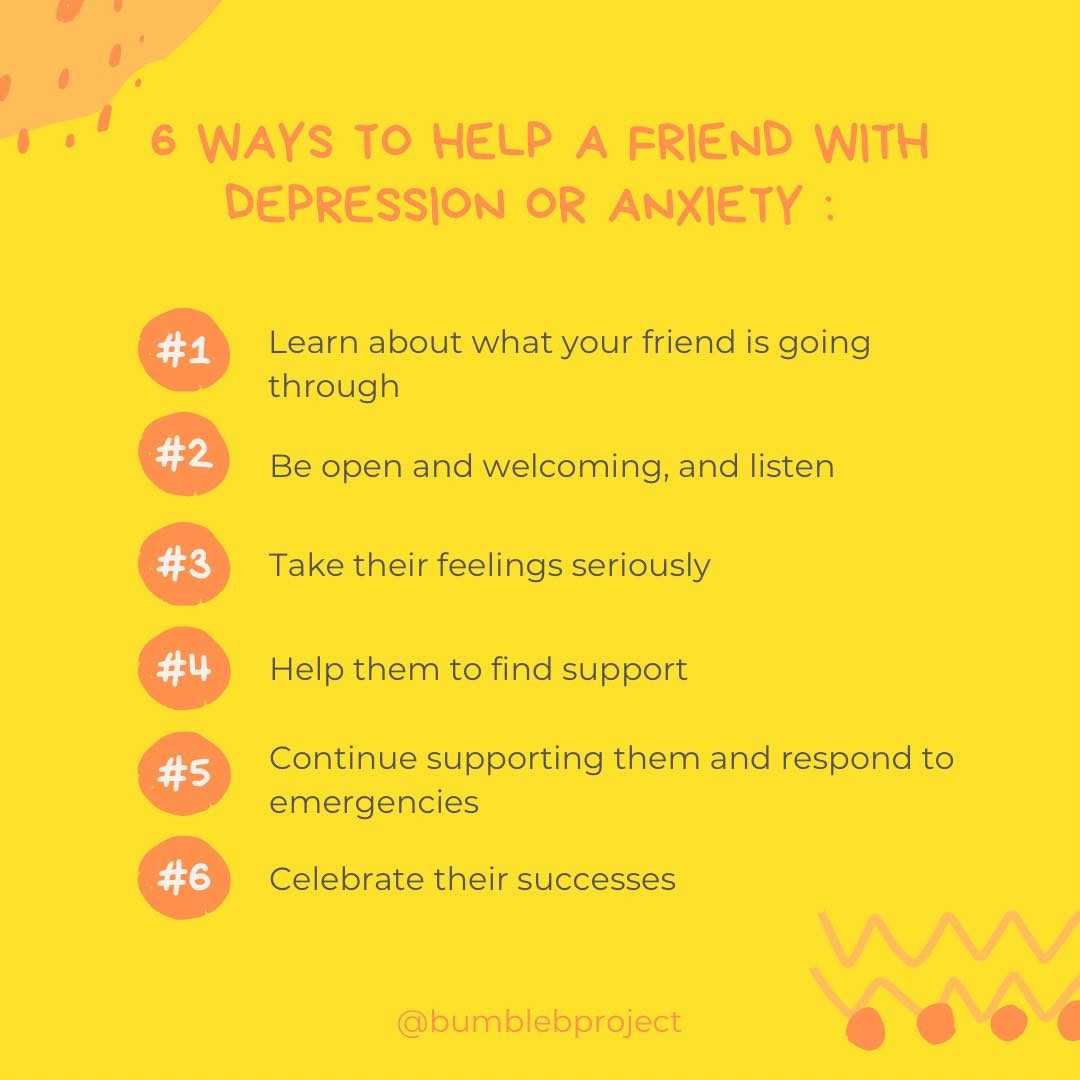
One of the most important ways to be a good friend is to help your friends when you notice something is wrong. This includes helping them get the support they need and deserve if they are experiencing a mental health condition. This might seem like a big task, but it doesn’t have to be.
No matter how much you care about your friend your mental health comes first. How are you supposed to take care of someone else if you're not taking care of yourself? While helping a struggling friend remember to frequently check in with yourself and take a step back if you're getting overwhelmed or drained. Respecting boundaries is important.
Keep in mind that your friend might not be ready to talk about what they’re going through or simply may not want your help right now. You cannot force someone to get help, so just do your best to be there with your friend through their journey and be ready if and when they do finally reach out.
Being a friend means being there in easy times and more difficult times. If your friend is experiencing a mental health condition, this is a time when they need you the most. And sometimes just talking about it might help your friend feel less alone and more understood. You can be the difference in helping a friend who needs support but is too afraid to seek help. Just a simple conversation can go a long way in helping your friend. You can make a huge difference in someone’s life.
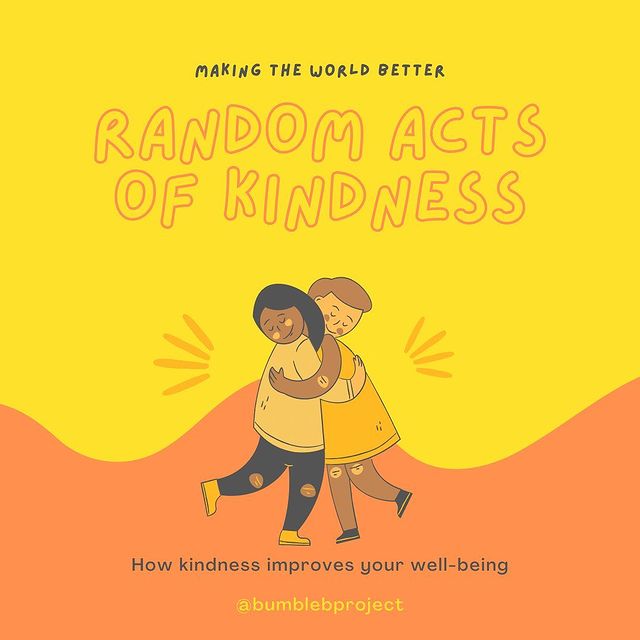
Random acts of kindness can vary from small to large, there’s always something you can do! Here are some ideas if you don’t know where to start or what to do 🙂
- Give an unexpected compliment
- Plant a tree
- Let someone cut in front of you in line
- Slow down so someone can merge in front of you in traffic
- Let someone else take that perfect parking spot
- Buy a warm meal for someone in need
- Help someone struggling to carry their grocery bags
- Say something encouraging to a parent who’s struggling with rambunctious kids in a restaurant or grocery store
- Offer to return a stranger’s grocery cart to the front of the store
- Keep plastic bags filled with snacks and sample-size toiletries in your car to give to the homeless
- Pick up a piece of litter on the street and throw it out
- Pass along a compliment to a service worker’s boss
- Leave a positive comment on a news article or blog post
- Send a care package to a service member
- Write a thank you note to your mail carrier
- Smile at someone who looks sad
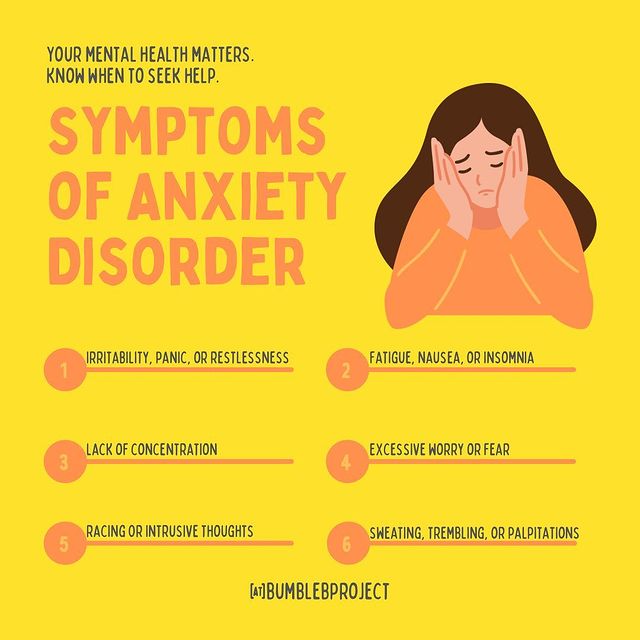
Occasional anxiety is an expected part of life. You might feel anxious when faced with a problem at work, before taking a test, or before making an important decision. But anxiety disorders involve more than temporary worry or fear. For a person with an anxiety disorder, the anxiety does not go away and can get worse over time. The symptoms can interfere with daily activities such as job performance, school work, and relationships. There are several types of anxiety disorders, including generalized anxiety disorder, panic disorder, and various phobia-related disorders.
Anxiety disorders are the most common mental health concern in the United States. Over 40 million adults in the U.S. (19.1%) have an anxiety disorder. Meanwhile, approximately 7% of children aged 3-17 experience issues with anxiety each year. Most people develop symptoms before age 21.
Doctors don’t completely understand what causes anxiety disorders. It’s currently believed certain traumatic experiences can trigger anxiety in people who are prone to it. Genetics may also play a role in anxiety. In some cases, anxiety may be caused by an underlying health issue and could be the first signs of a physical, rather than mental, illness.
A person may experience one or more anxiety disorder at the same time. It may also accompany other mental health conditions such as depression or bipolar disorder. This is especially true of generalized anxiety disorder, which most commonly accompanies another anxiety or mental condition.
If you’ve decided you need help with your anxiety, the first step is to see your primary care doctor. They can determine if your anxiety is related to an underlying physical health condition. If they find an underlying condition, they can provide you with an appropriate treatment plan to help alleviate your anxiety.
Your doctor will refer you to a mental health specialist if they determine your anxiety is not the result of any underlying health condition. The mental health specialists you will be referred to include a psychiatrist and a psychologist.
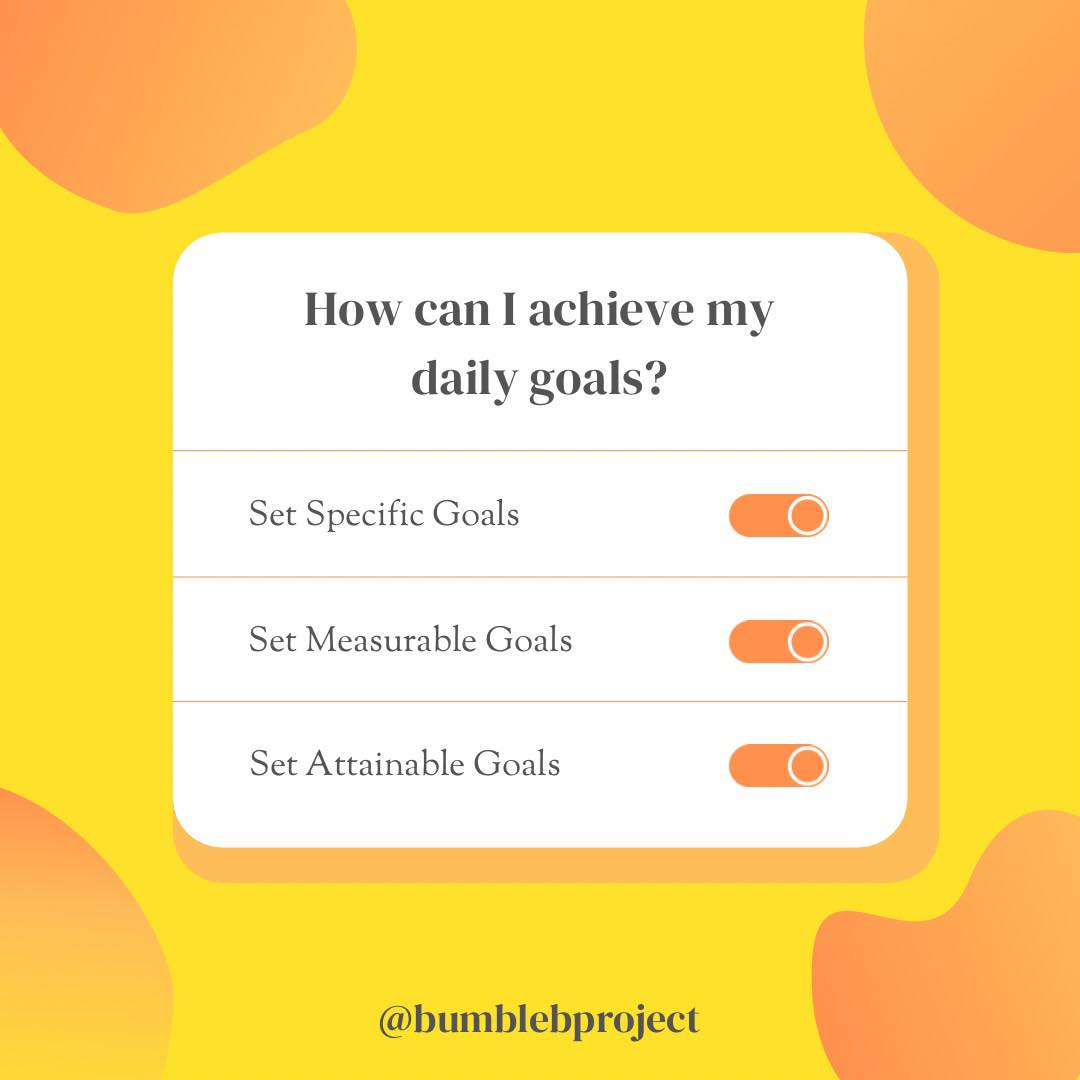
Many people feel as if they're adrift in the world. They work hard, but they don't seem to get anywhere worthwhile.
A key reason that they feel this way is that they haven't spent enough time thinking about what they want from life, and haven't set themselves formal goals. After all, would you set out on a major journey with no real idea of your destination? Probably not!
First consider what you want to achieve, and then commit to it. Set SMART (specific, measurable, attainable, relevant and time-bound) goals that motivate you and write them down to make them feel tangible. Then plan the steps you must take to realize your goal, and cross off each one as you work through them.
Goal setting is a powerful process for thinking about your ideal future, and for motivating yourself to turn your vision of this future into reality.
The process of setting goals helps you choose where you want to go in life. By knowing precisely what you want to achieve, you know where you have to concentrate your efforts. You'll also quickly spot the distractions that can, so easily, lead you astray.
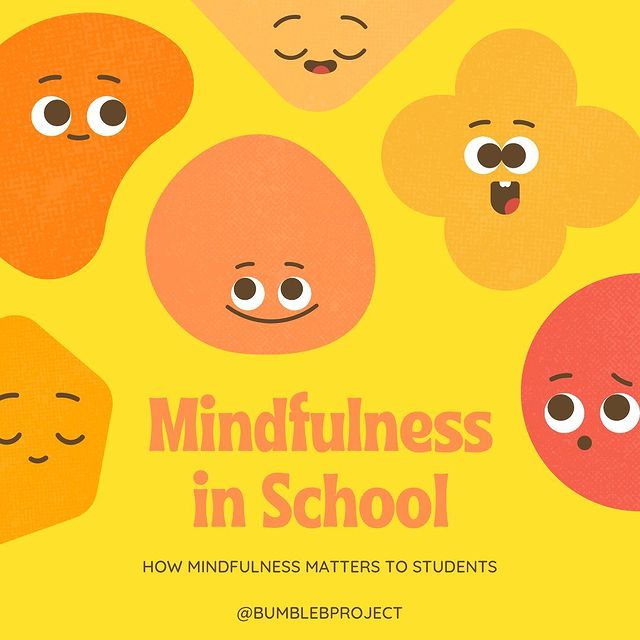
Mindfulness. It’s a pretty straightforward word. It suggests that the mind is fully attending to what’s happening, to what you’re doing, to the space you’re moving through. That might seem trivial, except for the annoying fact that we so often veer from the matter at hand. Our mind takes flight, we lose touch with our body, and pretty soon we’re engrossed in obsessive thoughts about something that just happened or fretting about the future. And that makes us anxious.
Yet no matter how far we drift away, mindfulness is right there to snap us back to where we are and what we’re doing and feeling. If you want to know what mindfulness is, it’s best to try it for a while. Since it’s hard to nail down in words, you will find slight variations in the meaning in books, websites, audio, and video.
Mindfulness is not only a popular topic for researchers and academics; it’s also becoming quite the mainstream phenomenon.
One of the reasons for the popularity of mindfulness is its simplicity. It is easy (relatively, anyway), inexpensive, and can be practiced by anyone at any time.
Although it might sound like madness trying to teach mindfulness concepts to young children, it’s actually perfectly suited for educational settings—and those settings in which it is most difficult to implement mindfulness are generally the ones that need it the most!
One of the best ways to prepare your students for a rich school career is by teaching them social-emotional skills. Mindfulness activities are a simple, enjoyable way for everyone from young children to older students to learn these skills. Rooted in Eastern spirituality and psychological research, mindfulness is proven to transform our brains in a way that leads to better grades and coping skills.
But the benefits of mindfulness in schools extend to educators, too. Stressed teachers often feel overwhelmed and ineffective in classroom management. But by practicing mindfulness, teachers can learn emotional regulation techniques that change the way they view their jobs and interact with their students. Both their psychological health and classroom environment improve by practicing mindfulness.
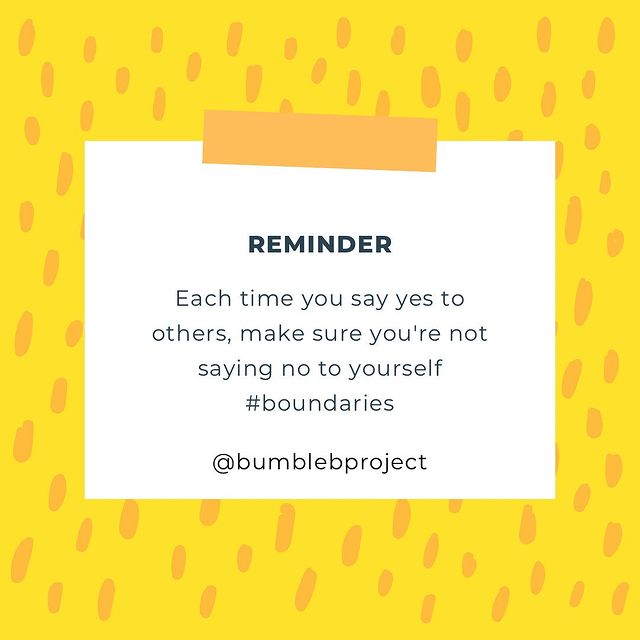
“A boundary is a limit or space between you and the other person; a clear place where you begin and the other person ends . . . The purpose of setting a healthy boundary is, of course, to protect and take good care of you”
- Parkview Student Assistance Program
STEPS TO SETTING BOUNDARIES
Identify your boundaries. Be clear on what you need before trying to communicate or enforce the boundary.
Communicate your boundaries or expectations clearly, calmly, and consistently. Stick to the facts without over-explaining, blaming, or becoming defensive.
If your boundaries aren't respected, evaluate your options and take action.
EXAMPLES OF SETTING EMOTIONAL BOUNDARIES
⭐️Saying no
⭐️Refusing to take blame
⭐️Expecting respect
⭐️Dictating your own feelings
⭐️Asking for space
⭐️Communicating discomfort
⭐️Sticking up for yourself
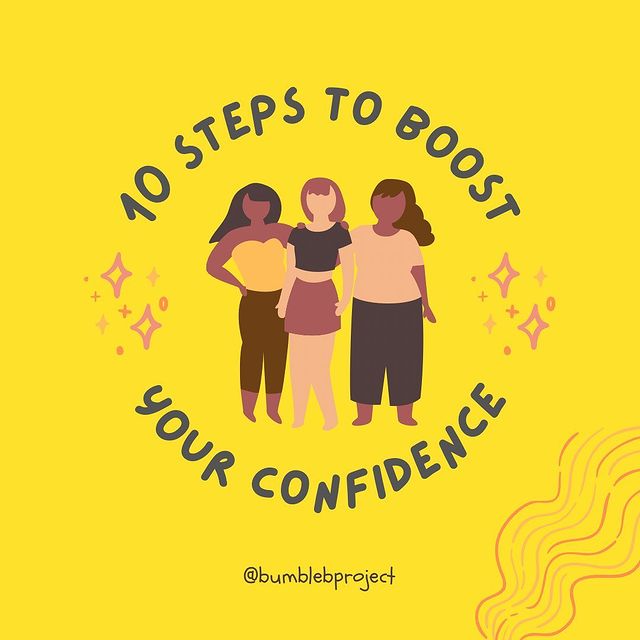
Self-confidence is an attitude about your skills and abilities. It means you accept and trust yourself and have a sense of control in your life. You know your strengths and weakness well, and have a positive view of yourself. You set realistic expectations and goals, communicate assertively, and can handle criticism.
On the other hand, low self-confidence might make you feel full of self-doubt, be passive or submissive, or have difficulty trusting others. You may feel inferior, unloved, or be sensitive to criticism. Feeling confident in yourself might depend on the situation. For instance, you can feel very confident in some areas, such as academics, but lack confidence in others, like relationships.
Having high or low self-confidence is rarely related to your actual abilities, and mostly based on your perceptions. Perceptions are the way your think about yourself and these thoughts can be flawed.
Low self-confidence might stem from different experiences, such as growing up in an unsupportive and critical environment, being separated from your friends or family for the first time, judging yourself too harshly, or being afraid of failure. People with low self-confidence often have errors in their thinking.
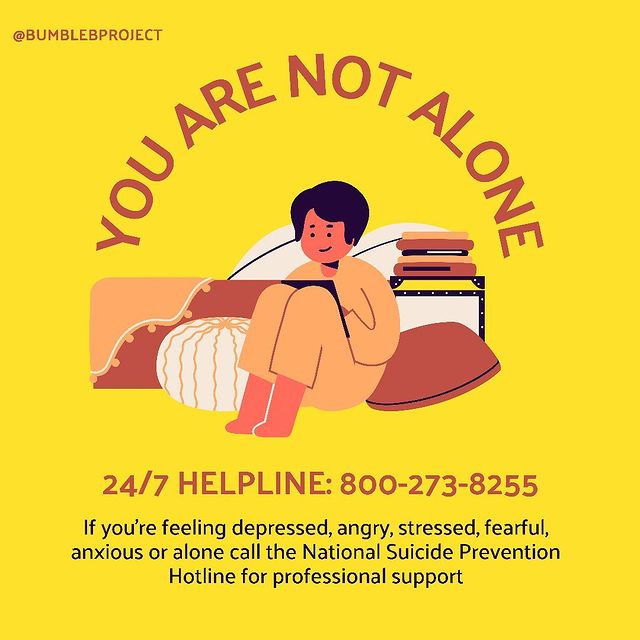
We can all help prevent suicide. The Lifeline provides 24/7, free and confidential support for people in distress, prevention and crisis resources for you or your loved ones, and best practices for professionals.
No matter what problems you’re dealing with, whether or not you’re thinking about suicide, if you need someone to lean on for emotional support, call the Lifeline.
People call to talk about lots of things: substance abuse, economic worries, relationships, sexual identity, getting over abuse, depression, mental and physical illness, and loneliness, to name a few.
What Happens When I Call The Lifeline?
First, you’ll hear a message telling you that you’ve reached the National Suicide Prevention Lifeline.
They’ll play you a little hold music while they connect you.
A skilled, trained crisis worker who works at the Lifeline network crisis center closest to you will answer the phone.
This person will listen to you, understand how your problem is affecting you, provide support, and share any resources that may be helpful.
You are not alone.
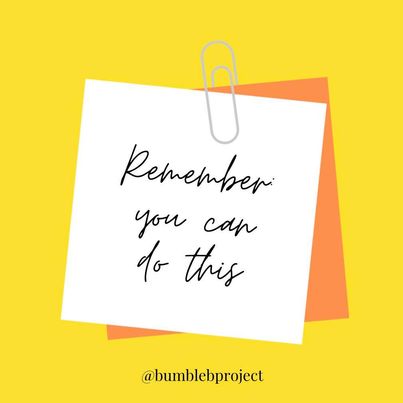
Few things in the world are more powerful than a positive push. A smile. A world of optimism and hope. A 'you can do it' when things are tough. 💛
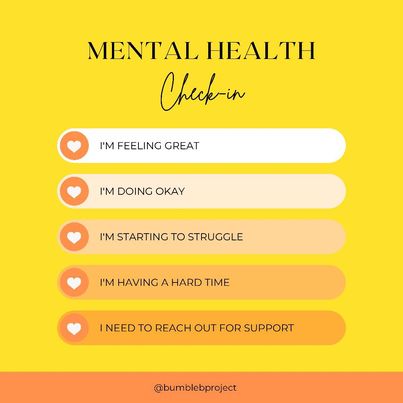
Checking in with yourself is important because a lot of us just keep going until we hit rock bottom. Check in frequently to prevent burnout and get help when you need it.
A few quick things to keep in mind:
Spend as much time as you want on each question.
Stay engaged with follow-up questions.
Keep things judgment-free.
Stay in touch after, and don’t be afraid to connect with resources if you need them.
1. How are you feeling today, really? Physically and mentally.
2. What’s taking up most of your headspace right now?
3. What was your last full meal, and have you been drinking enough water?
4. How have you been sleeping?
5. What have you been doing for exercise?
6. What did you do today that made you feel good?
7. What’s something you can do today that would be good for you?
8. What’s something you’re looking forward to in the next few days?
9. What’s something we can do together this week, even if we’re apart?
10. What are you grateful for right now?
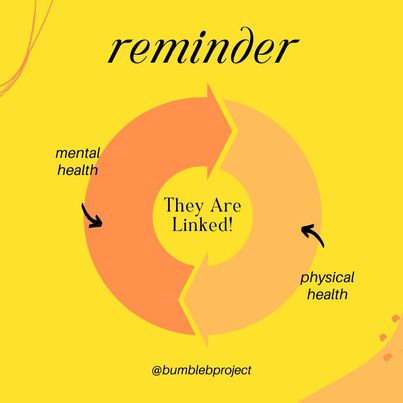
Physical and mental health are much more connected than many people realize. The mind-body connection is real. This means that taking care of your physical health can help improve your mental health.
Making simple changes to lifestyle habits — such as physical activity, diet, and sleep — can go a long way toward boosting how you feel inside and out. Here’s how this works — and some tips to help you get started.
Exercise benefits both physical and mental health. Working out regularly can improve your mood and reduce panic attacks. Working out can also lower stress, enhance brain function, and boost self-esteem.
Having a regular exercise plan can sound daunting, but breaking up the recommended 150 minutes of weekly exercise into five half-hour sessions can help. And you don’t even have to do all 30 minutes at once. You can do three 10-minute sessions or two 15-minute workouts, depending on what fits into your schedule.
If the word “workout” makes you break into a cold, dread-filled sweat, keep in mind that this doesn’t mean you have to pump iron at the gym to fulfill your body’s exercise needs. A brisk walk around the block is fine, too.
What you eat can also either help or hurt your mental health. Sometimes it can be more convenient to skip meals or eat lots of processed foods, but there’s a reason why you may feel bad both physically and mentally after overindulging.
Your stomach and brain are linked by a nerve that lets you know you’re hungry. But this nerve also explains why major stress can make you feel sick to your stomach.
You should aim to eat a diet high in fruits, vegetables, nuts, whole grains, and unsaturated fats.
Water should be your number one go-to for fluids. Just make sure to always drink when you feel thirsty, and to talk to your physician or a nutritionist if you need help determining how much water you need on a daily basis.
Sleep allows you to recharge your body — including your brain. If you aren’t recharging your mind and body properly, this may cause problems for your mental health.
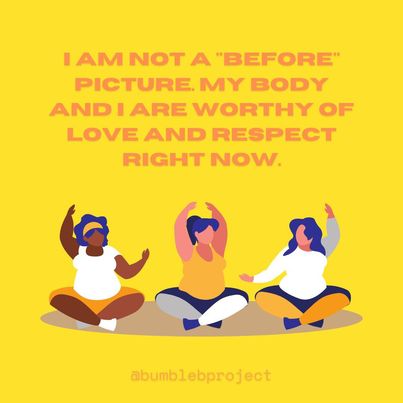
Every body deserves acceptance — including yours. Let these body-positive quotes serve as a reminder that while it's normal to struggle with your body image, practicing self-love and self-acceptance can help you feel more confident and let go of impossible beauty standards.
"It doesn’t have anything to do with how the world perceives you. What matters is what you see."
- Gabourey Sidibe
"Feeling beautiful has nothing to do with what you look like."
- Emma Watson
"I can’t think of any better representation of beauty than someone who is unafraid to be herself."
- Emma Stone
"I definitely have body issues, but everybody does. When you come to the realization that everybody does — even the people that I consider flawless — then you can start to live with the way you are."
- Taylor Swift
"Your words have so much power. Every day, if you tell yourself, ‘I love you,’ if you give yourself one word of validation, it will change your mind."
- Ashley Graham
"You have to stand up and say, ‘There’s nothing wrong with me or my shape or who I am, you’re the one with the problem!'"
- Jennifer Lopez
"How I feel about myself is more important than how I look. Feeling confident, being comfortable in your skin — that’s what really makes you beautiful."
- Bobbi Brown
"I realize everybody wants what they don’t have. But at the end of the day, what you have inside is much more beautiful than what’s on the outside."
- Selena Gomez
"Be happy in your own skin. If you are unhealthy, start by making small changes to become healthier. You are unique, beautiful, and worthy."
- Octavia Spencer
"You define beauty yourself. Society doesn’t define your beauty."
- Lady Gaga
"Being a healthy woman isn’t about getting on a scale or measuring your waistline. We need to start focusing on what matters — on how we feel, and how we feel about ourselves."
- Michelle Obama
"We just need to be kinder to ourselves. If we treated ourselves the way we treated our best friend, can you imagine how much better off we would be?"
- Meghan Markle
"Knowing that I feel good because I am being diligent about taking care of myself mentally, physically, and emotionally creates self-esteem."
- Chrissy Metz

Everyone has a sexual orientation and gender identity. Sexual orientation is who you are romantically or physically attracted to. Gender identity is the internal sense of being male, female, both or neither, which is separate from your biological sex. People who have a different sexual orientation or gender identity from most people fall under the umbrella term LGBTQ+. It is really important to know that identifying as LGBTQ+ is NOT a mental illness or disorder.
Although being LGBTQ+ is absolutely not a mental illness, many LGBTQ+ people experience mental health struggles.
According to a recent study by the Trevor Project:
40% of LGBTQ respondents seriously considered attempting suicide in the past twelve months, with more than half of transgender and nonbinary youth having seriously considered suicide
68% of LGBTQ youth reported symptoms of generalized anxiety disorder in the past two weeks, including more than 3 in 4 transgender and nonbinary youth
48% of LGBTQ youth reported engaging in self-harm in the past twelve months, including over 60% of transgender and nonbinary youth
46% of LGBTQ youth report they wanted psychological or emotional counseling from a mental health professional but were unable to receive it in the past 12 months
10% of LGBTQ youth reported undergoing conversion therapy, with 78% reporting it occurred when they were under age 18
29% of LGBTQ youth have experienced homelessness, been kicked out, or run away
1 in 3 LGBTQ youth reported that they had been physically threatened or harmed in their lifetime due to their LGBTQ identity
61% of transgender and nonbinary youth reported being prevented or discouraged from using a bathroom that corresponds with their gender identity
86% of LGBTQ youth said that recent politics have negatively impacted their well-being
Transgender and nonbinary youth who reported having pronouns respected by all or most people in their lives attempted suicide at half the rate of those who did not have their pronouns respected
Resource
The Trevor Project
(LGBTQ+ helpline)
1-866-488-7386
Or text “START” to 678678
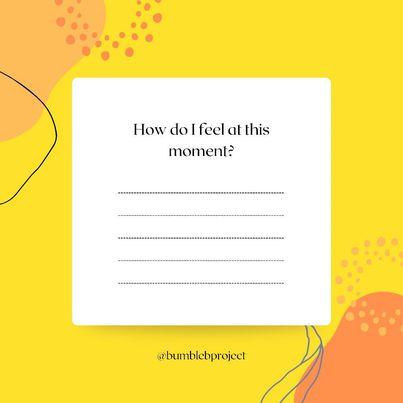
What is a mindful check-in good for? Imagine if you could hit a pause button every time you feel stressed, anxious, or overwhelm by what’s coming at you. Then take your time to decide what the best action might be. With practice, mindfulness can become your pause button.
We often do not recognize what is happening inside of us when we are triggered by craving or overwhelming emotion. We often focus our attention on what is going wrong out there. We also do not stick with what we are experiencing. Instead, we do whatever we can to get rid of that feeling— act out, lash out, avoid or numb, etc. Mindfulness can be used as a pause button in your crazy day.
3 Questions For Mindful Awareness
To be more precise, ask yourself these questions whenever you feel triggered to react instead of respond:
What are you feeling in your body—in this moment?
What are you thinking—in this moment?
What are all the feelings you are experiencing—in this moment?
The key is to keep your awareness anchored to right now. This is mindful awareness.
Pay attention to what is happening right now without avoiding it or judging it. Can you keep your full attention focused on what you are experiencing in this moment, without trying to get rid of it?